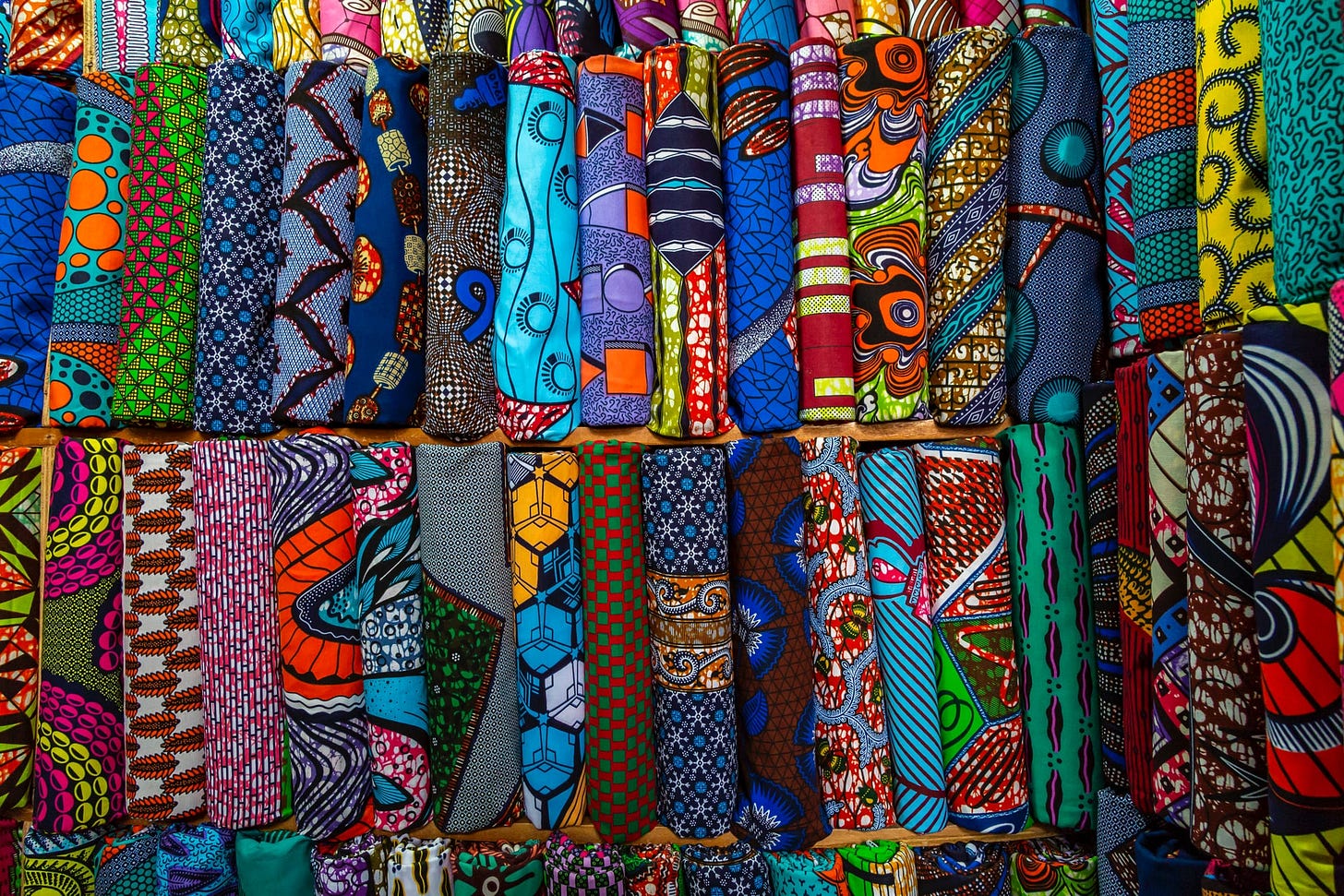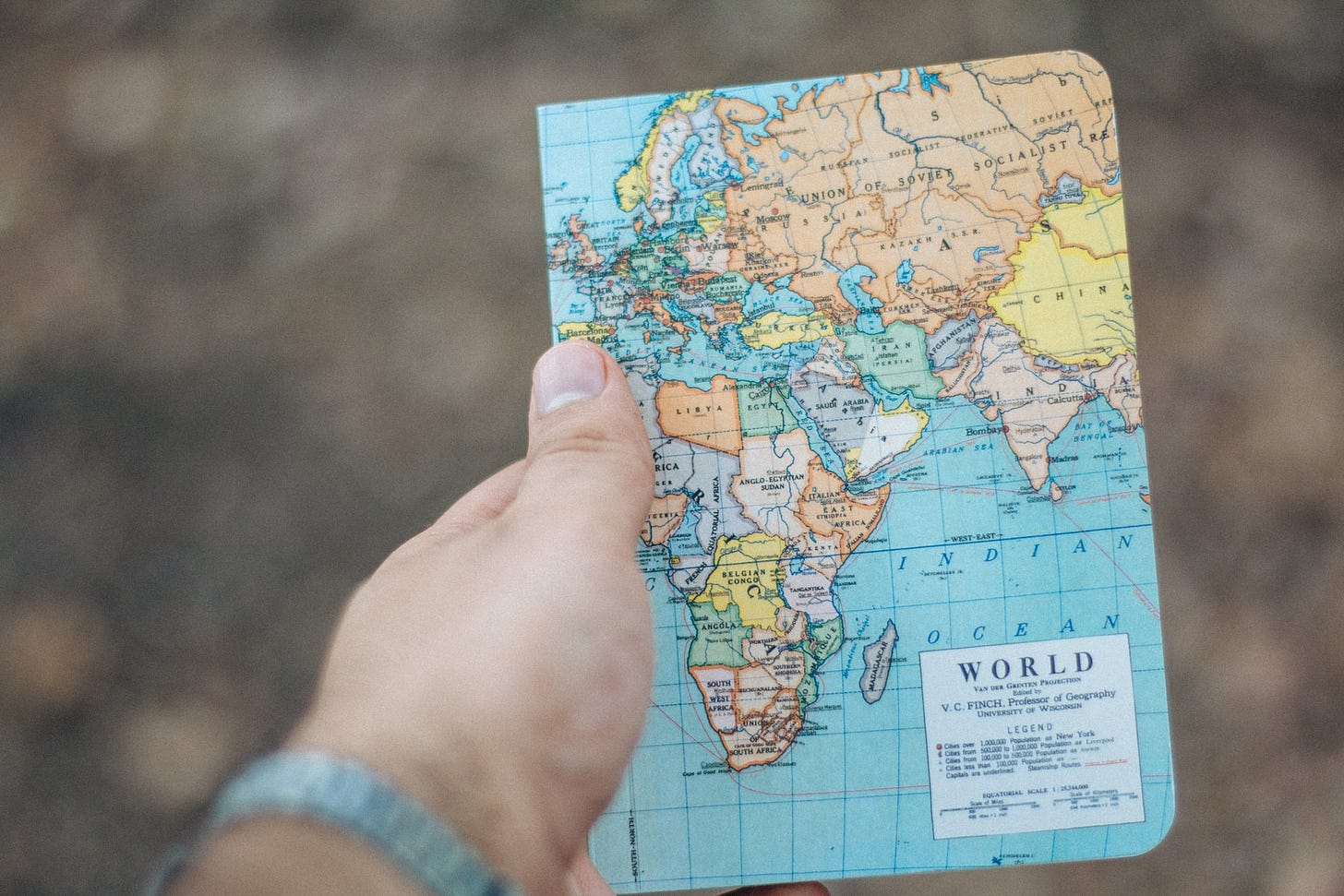Africa’s coronavirus clash is not a single story
Calls to decolonise the journalistic gaze as the virus picks up speed.
This is a fresh post from Worldwise, a newsletter for global insight and journalism where current affairs meet humanity.
It’s written by Anita Makri. If you like what you’re reading, let me know by tapping the little heart button or spread the word by sharing the post.
Was this forwarded to you? Learn more and sign up here.

Photo by Eva Blue on Unsplash
The Worldwise View
Early in the course of the pandemic, there were fears that Covid-19 would devastate Africa.
You might have noticed that those fears have so far looked wide of the mark—but there are signs this may be changing.
On June 11 the WHO warned that spread of the virus is picking up speed. "It took 98 days to reach 100 000 cases and only 18 days to move to 200 000 cases," it said in a statement (Politico + France 24).
I’m surprised that this sign of acceleration hasn’t been more widely reported.
As things stand, the continent has the lowest death toll of all world regions, according to Financial Times data. And attempts to explain it have come up with very different answers—by defying expectation and stereotype, the continent’s experience has been the subject of interpretations I’ve been observing for some time.
Different narratives
Some have suggested that the real impact of the virus isn’t visible: limited testing could mean African countries are under-reporting, for example.
There may be instances of under-reporting, and testing has been a struggle for a while (Economist + Scientific American). But the WHO's Africa director Matshidiso Moeti has said repeatedly in briefings that even where testing and surveillance are ramped up, they aren't unveiling a large number of undetected cases.
And if the real number of cases and deaths was much higher than reported statistics indicated, it would show up in excess-death statistics or hospitals buckling under the strain of seriously ill patients—which hasn’t been the case.
The virus has been travelling slowly across the continent, another theory goes, so a rise in cases is still on the cards. This analysis may prove to be on point.
—
A very different narrative that's also been making the rounds interprets Africa’s experience as an under-appreciated success story (World Politics Review + Al Jazeera).
This suggests countries know what to do, have taken the right steps and can teach the world what a good response looks like (New Yorker + Oxfam fp2p).
Rwanda is one example that’s received media attention (Nature + Devex). Uganda has been praised for its policies to protect refugees. A few reports see positives in South Africa’s response too (New Humanitarian + Nat Geo).
—
Then there are those who point out that binary views of Africa as either helpless or a ‘teacher’ oversimplify the reality on a continent where 54 nations make for very different pandemic trajectories and responses.
This one rings more true. And it’s a point Moeti makes in practically every briefing.
If you want to delve into the arguments, these articles are worth your time:
Beyond the Western Gaze — by George Kibala Bauer (HT Oxfam fp2p)
A reminder during COVID-19: Africa is not a monolith — by Hloni Bookholane
Let’s Decolonize the Coronavirus — by Andrea Filipi and Katrin Wittig
What’s actually going on?
The reality is that African responses to this pandemic are as diverse as the continent, and—to borrow from Nigerian writer Chimamanda Ngozi Adichie—can't and shouldn’t be explained with a single story.
There are cases of successful response from countries such as Rwanda, Uganda and South Africa on one end of the spectrum; struggling fragile states like Sudan and the DRC on the other; and countries with different realities in between. Scroll down for reports from specific countries in the latest round-up.
“There is quite a lot of diversity in the situation of countries,” Moeti said on June 18, adding that the diversity extends to what’s going on within countries. Eight nations were responsible for 85% of cases recorded in a single week this month.
This isn’t to say there’s no value in the regional picture. The numbers do give some indication of how Africa compares with other parts of the world that find themselves on the peak of this pandemic wave.
So, what now?
While forecasts are difficult to make, health experts have said the region’s low mortality rates shouldn’t lead to complacency. Africa could, in fact, become the next pandemic epicentre as countries lift lockdowns and testing capacity remains a challenge.
But diversity needs to be the backdrop to discourse about the continent's past and future experience of the pandemic (and not only). The picture will stay blurry—and questionable for reasons the commentators above lay out more eloquently than I can—as long as African countries’ responses are reported on as a collective noun.

Photo by Adolfo Félix on Unsplash
Snapshots of Covid-19 in African countries
Burundi's president dies of suspected Covid-19, the first world leader to succumb to the virus - Guardian
In South Africa: Alcohol sales resumed recently, and now the country is fighting violence against women and children as well as the coronavirus - WaPo
Citizens protest police brutality against poor people under lockdown - Reuters
...and it's the same story in Kenya - Guardian
Tanzania stops publishing data about the pandemic, and declares the country Covid-free thanks to prayer - BBC
Ethiopia records the first case in a refugee camp - WIO
Activists estimate that 3 million informal traders in Zimbabwe have had their stalls destroyed in the government's pandemic clampdown - Reuters
In Sudan, people suffering from the economic impact demand an end to lockdown - Reuters
In Nigeria, online education is putting poor and vulnerable kids at a disadvantage - BONews
Islamist militant group Al-Shabab sets up coronavirus treatment centre in Somalia - Instagram/Republic Journal
…and the Red Cross fears coronavirus is spreading silently in the country’s displaced camps - Reuters
In Uganda, a social enterprise has been supplying a hospital with coronavirus face shields made out of plastic waste - Reuters
Worldwise is written by Anita Makri. Was this email forwarded to you? Learn more and subscribe here.



